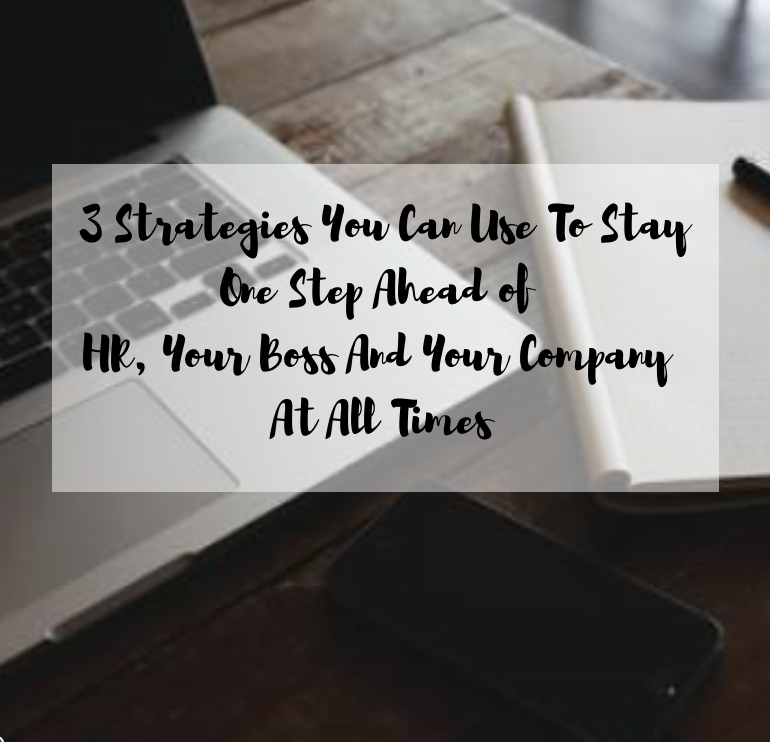One of the most overused phrases out right now (more overused than "stay woke") is work-life balance.
It's often thrown around by employers trying their best to attract new talent.
Look, I get it.
These days people care about flexibility and balance as much as, if not more than they care about pay.
We love life as much as we love work.
But this so-called ‘balance’ cited by many recruiters and managers as a way to seduce job seekers and even written into many benefits policies at companies all across the country, is mostly just a game of smoke and mirrors.
It's not real, y'all.
Few people know what it means to truly have work-life balance and even fewer can actually say they get to experience this phenomenon in all its glory.
The key to work-life balance is this: You've got to realize that it’s less of a balancing act and more of an exercise in integration.
97% of us have a job, which means that 97% of us will spend about 1/3 of our lives at work. With proportions like this, there may never be an opportunity to balance every single piece of our lives perfectly.
Yes, flexible work arrangements and telecommuting options definitely help, but instead of focusing on number of hours clocked, you should be focusing on creating a balanced mindset – better yet a lifestyle – that allows you to thrive both inside and outside the cubicle.
Click to Tweet:
"Balance isn't about focusing on the hours you work, it's about focusing on creating a lifestyle where you thrive inside and outside the cubicle."
So, how can you do it? How can you experience real balance that allows you to kill it at work and in life?
Here are 4 tips to help you achieve more work-life balance instantly.
Prioritize what’s important to you outside of work
Take a long, honest look at what you truly value in life. Is it focusing on health and wellness? Volunteering in your community? Experiencing quiet and uninterrupted alone time? Make a list of all the things you want to experience in your life on a normal basis and rank them in order of priority. Go deeper than just saying – I want to spend more time with my family. Really think about what that actually means for you. Do you want x amount of date nights with your partner every month? Do you want to chaperone the next field trip at your child’s school? Get really specific.
Carve out time for what’s important
Once you’ve identified what you want to focus on in life, you've got to make time in your schedule to actually do these things. If your idea of balance means taking more vacations, then pull out your calendar and block off the days you'll take your next trip. If you want to begin meditating, then set your alarm 30 minutes earlier, go to bed later, or use some time during your lunch break. We all find the time to do the things that are important to us and now that you’ve identified your life priorities, you have to ensure you make time to experience them.
Commit to not making sacrifices
Once you’ve made the time in your schedule to spend on the things you value outside of work, protect this time at all costs! It's not OK to push your scheduled gym time to the side so that you can pull an all-nighter at work. It's not OK to miss your niece’s dance recital because you want to proof read your presentation a couple more times before you submit it. Of course, unexpected things come up sometimes and we have to be flexible, but when you're missing more appointments than you're keeping, work and life are not in balance.
Be present
This is the most important tip of all. When you’re at work – be sure you're 100% focused on what you’re doing there. Don’t surf the Internet or lurk on Instagram when you’re supposed to be paying attention in a meeting or completing a project. Focus on the task in front of you and commit to being productive.
This will make it easier for you to do the second part of this tip, which is – when you’re off, be off. Don’t constantly check your work emails or log on from home just to “fix one small thing”. It’s important that you're present in whatever you’re focusing your energy on at the given moment.
Making a living is typically the priority for most of us, but I challenge you to make living the priority. By the time most people get to retirement age, I guarantee they're not wishing they had spent more time in the office and less time doing things they truly loved.
Be deliberate about prioritizing the things that are important to you. You'll be much happier in the end.
The topic of work-life balance is truly important to me and something I love to teach women about. If you'd be interested in a free video workshop on how to achieve work-life balance for yourself, join the VIP list by clicking here.



















 I've been in HR since 2010 and during this time I've learned a lot about how decisions are made on employees. In the past 6 years I've done the hiring and (unfortunate) firing as well as everything in between for thousands of employees.
I've had the opportunity to recruit and interview potential candidates, design and deliver training courses, create programs and initiatives and coach employees from all backgrounds on how to navigate their careers.
I've been in HR since 2010 and during this time I've learned a lot about how decisions are made on employees. In the past 6 years I've done the hiring and (unfortunate) firing as well as everything in between for thousands of employees.
I've had the opportunity to recruit and interview potential candidates, design and deliver training courses, create programs and initiatives and coach employees from all backgrounds on how to navigate their careers.